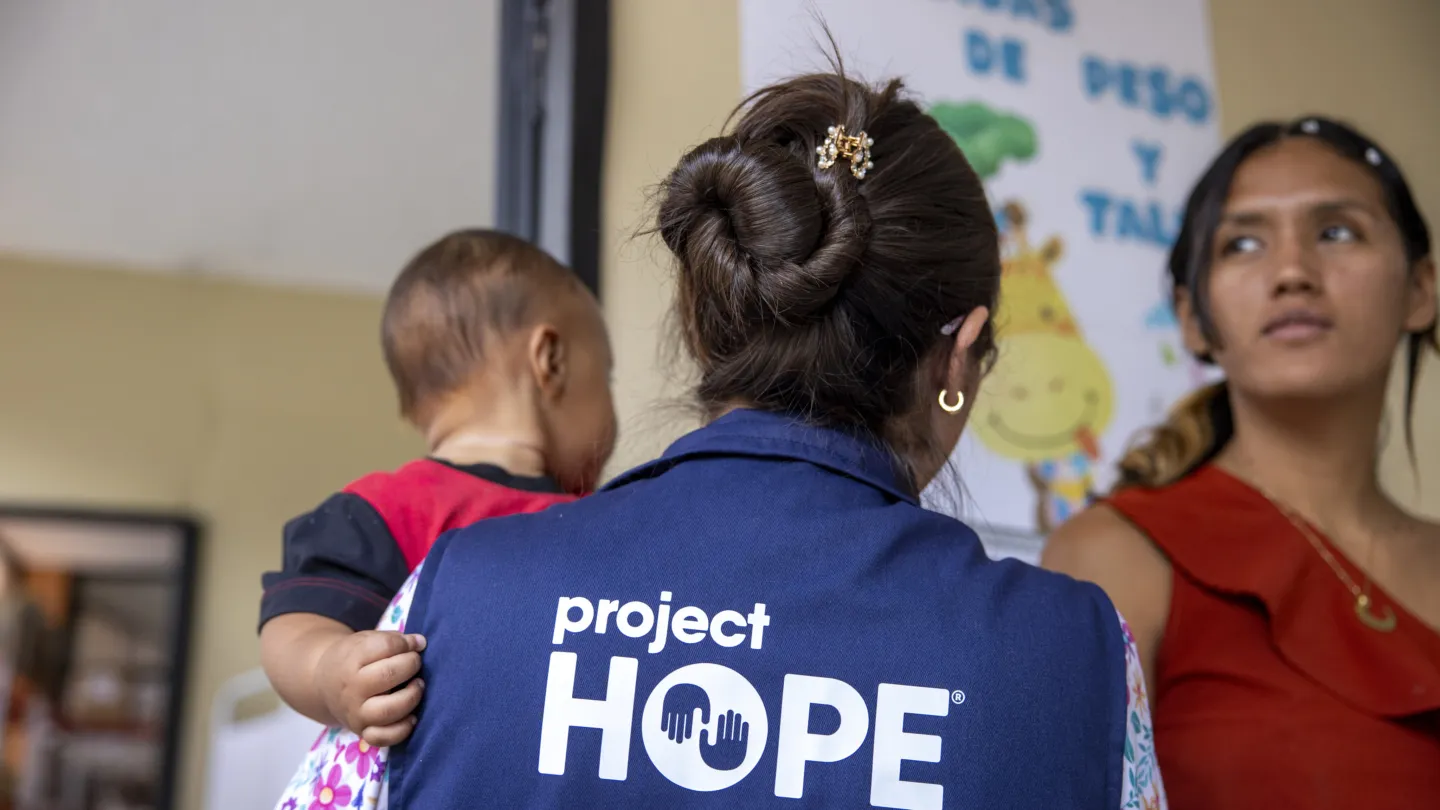Providing Health & Humanitarian Support for Migrants and Host Communities in Latin America

In response to escalating humanitarian needs across Latin America, Project HOPE has continued and scaled its delivery of essential healthcare, mental health services, and humanitarian aid to displaced communities and the host communities that support them in both Colombia and Ecuador. This expanded initiative builds on Project HOPE’s longstanding presence in the region and is made possible by generous support from The Church of Jesus Christ of Latter-day Saints.
Colombia and Ecuador are home to millions of Venezuelans and other forcibly displaced people who have moved across borders in search of safety, access to health services, and greater stability. Colombia alone hosts over three million Venezuelans, while Ecuador shelters more than 800,000. Many of these individuals are living without legal status, a reality that significantly limits their access to health care, clean water, and protection services. Project HOPE’s programs are designed to serve these communities while also building capacity for the overstretched systems of the host communities that welcome them.
“Migrants and refugees often endure significant trauma, illness, and insecurity during their journeys, which can require urgent medical and mental health support that traditional health systems may not be equipped to provide,” said Adib Fletcher, Project HOPE’s Senior Regional Director for the Americas & Humanitarian Response. “With this initiative, we are expanding access to lifesaving care while reinforcing the resilience of local systems.”
In Colombia’s Norte de Santander – a region on the frontline of pendular migration and in-transit displacement – Project HOPE is scaling up programming across the municipalities of Villa del Rosario, Cúcuta, Convención, and Tibú. Previously, some hospitals were operating at more than 200% capacity, reflecting the urgent needs in border areas. We support four health institutions and eight sites with primary care services. Project HOPE’s teams are helping to close gaps, ensuring free, equitable access to health services for people regardless of legal status.
The program is deploying doctors, nurses, psychologists, and nutritionists to provide primary, maternal, and mental health care, as well as nutrition services, and procure essential equipment like neonatal cribs and echographs. It will also address water, sanitation, and hygiene (WASH) needs through the distribution of hygiene kits and the rehabilitation of health facilities and WASH infrastructure. Additionally, Project HOPE will launch community awareness campaigns to improve protection and address topics like Psychological First Aid and gender-based violence (GBV). This effort builds on past programs and a regional response that supported over 56,795 people in 2024.
In Ecuador, where a policy change has made it more difficult for most Venezuelan migrants to regularize in the country, Project HOPE is providing medical consultations in shelters, clinics, and via mobile health brigades in critical transit and host communities within the provinces of Carchi (Tulcán, San Gabriel). Similar to Colombia, the program will also include the distribution of hygiene kits and an upgrade in WASH infrastructure at clinics and shelters. Project HOPE will also train local health workers in mental health and psychosocial support (MHPSS), strengthen specialized care pathways, and conduct psychological consultations, while strengthening the current referral networks for GBV survivors in partnership with other organizations.
In both countries, the program’s community-based design includes feedback mechanisms, local coordination with the Ministry of Health and other NGOs, and ensuring that services are not only inclusive but also sustainable. In 2024, the program directly supported 35,295 people in Colombia and 22,659 people in Ecuador. In this next phase of the program, Project HOPE aims to reach 58,652 people in both Colombia and Ecuador, building on lessons learned in the previous program iteration.
Project HOPE’s humanitarian strategy is rooted in the principle that everyone deserves access to health care, including those whose lives have been uprooted by violence, conflict, economic instability, and climate-related disasters. Our multisectoral approach supports both people in situations of mobility, including forced migrants, irregular migrants, asylum seekers, and refugees, and the host communities that sustain them.



